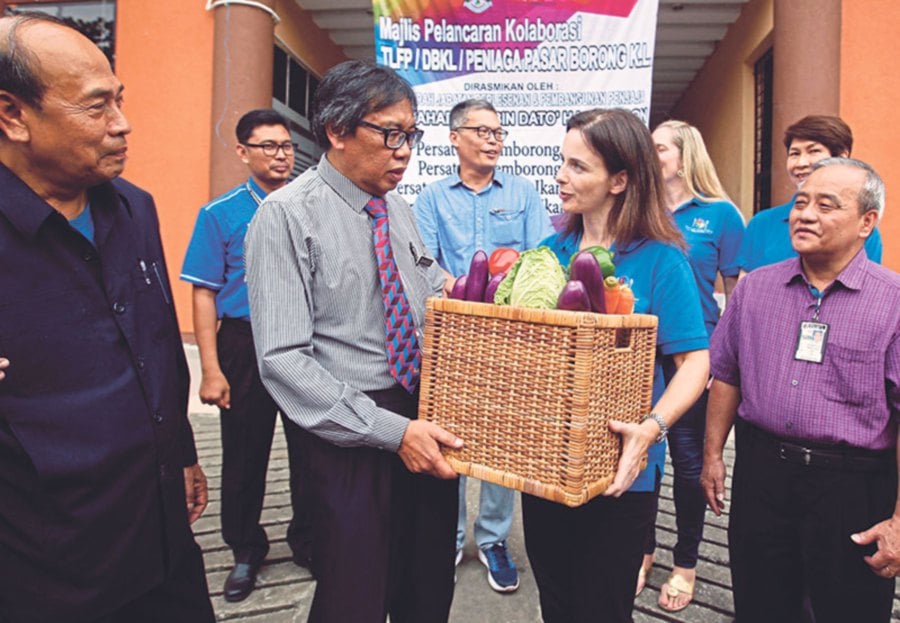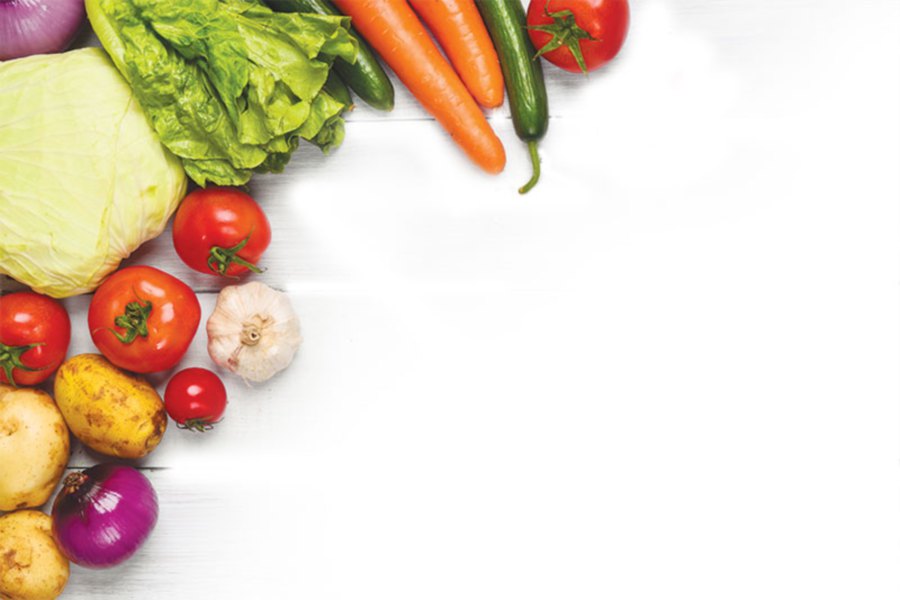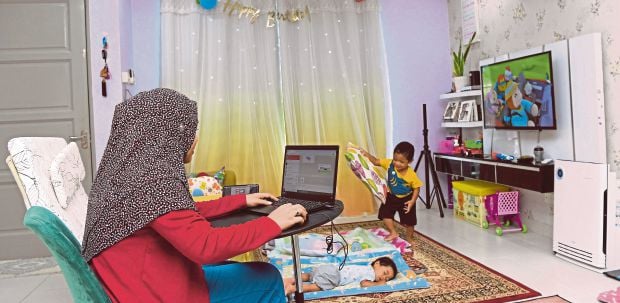“HOW long have you been a journalist for and what sort of personalities have you featured?” asks Suzanne Mooney, turning the tables in the interview.
It isn’t the least bit surprising that she kicks off the afternoon chat with questions for me instead.
Mooney was after all a senior news producer at one of the world’s most renowned news networks — the British Broadcasting Corporation.
She may have spent 15 years in the London HQ curating insightful interviews with prime ministers and presidents but here in Kuala Lumpur, she’s better known for her work with The Lost Food Project.
The NGO, which Mooney founded, takes surplus food from big grocery stores and re-distributes the edibles to communities in need.
The Lost Food Project may only be slightly more than a year old but the small outfit is already making big changes to the way we view food waste.
In August, they’ll make even more progress as Mooney heads to Copenhagen with the Malaysian unit for the World Food Summit 2017.
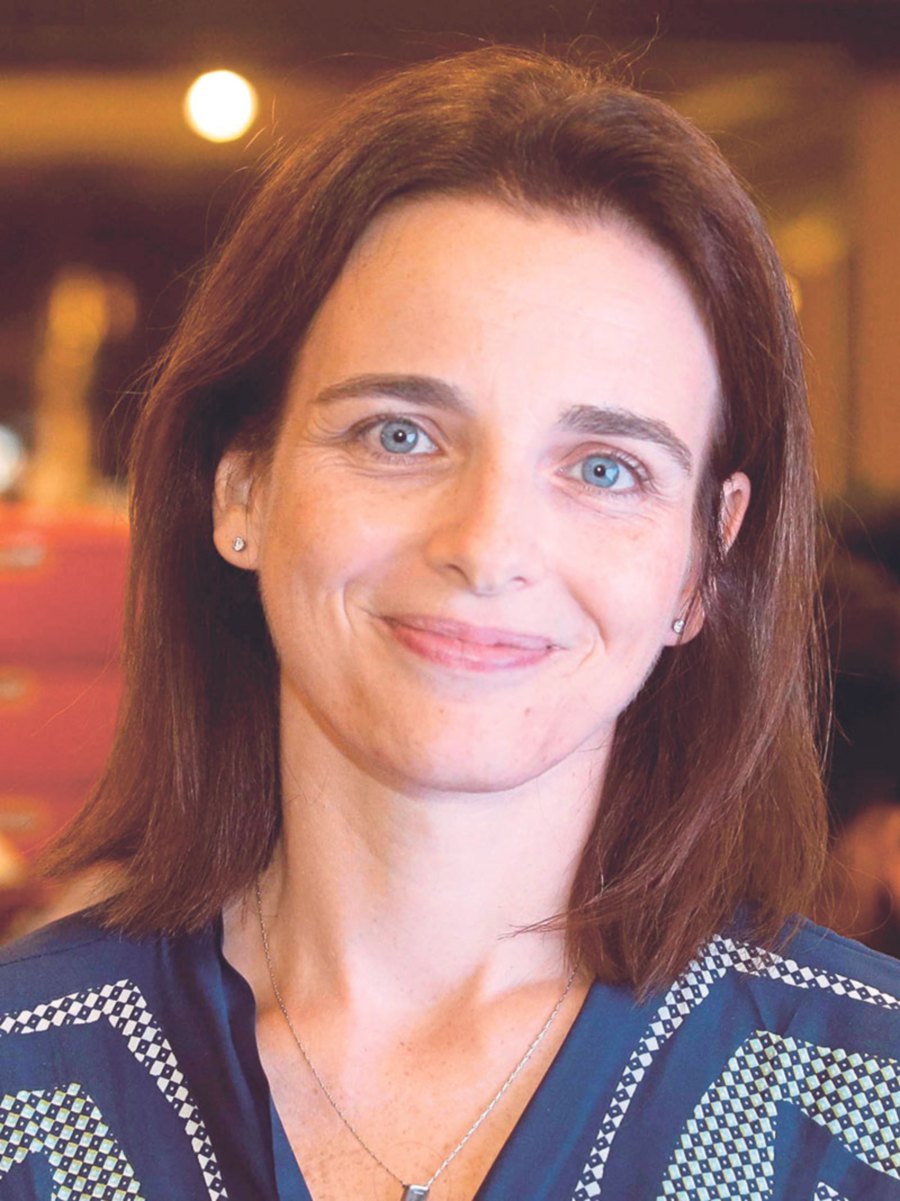
WORKING RIGHT
We’re sitting in a quiet corner of her friend’s house which is big enough to lend an echo to the soft cadence in Mooney’s voice.
While she speaks, she glances outside to where her three young kids are splashing around in the pool.
“I’m really looking forward to it. It’s a great place to network and exchange ideas with people rooting for the same cause,” Mooney says of her trip to the Danish capital next month.
The annual event, which sees the participation of the likes of decision makers, industry experts, food producers, government agencies and NGOs, is used as a platform to discuss the key issues involving food. Food wastage sits on the top of the list.
Food waste, explains Monney, has detrimental impacts on both the growing population of starving people and the frail health of Mother Earth.
In 2013, UN’s Food and Agriculture Organisation (FAO) reported that food wastage contributed to 3.3 billion tonnes of greenhouse gasses.
In a recent update, the UN estimated that more than 102 million people are starving, with 20 million of those nearing famine.
“Not many people understand the kind of negative impacts of food waste. And, to be honest, I was one of them,” she says, grimacing.
Growing up in London of the 1970s and 80s, food was never an issue for Mooney and her family. But not so for her parents.
“They (parents) grew up in post-war Britain where food rationing was still going on. So the way they valued food was very different from the way we did,” she remarks, admitting that she too was guilty of wasting food when she was growing up.
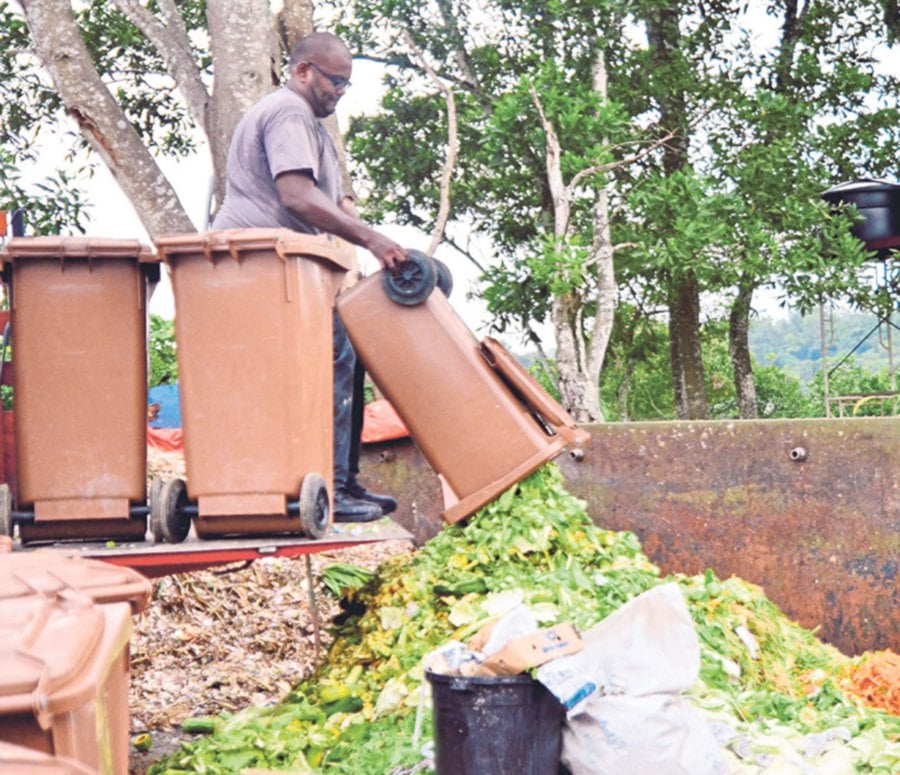
FOOD FOR THOUGHT
It wasn’t until Mooney stepped foot in Africa did she truly understand the value of food.
After university, she and a few friends decided to spend a year exploring the continent.
“We lived quite wild! We drove around, slept in tents and, for a while, didn’t even have access to warm water,” she confides, with a laugh.
To fund her travels, Mooney found a job as a waitress in Ferry Man’s Tavern, a local brewery and restaurant in Cape Town.
“It was towards the end of apartheid, and as white people, we were getting paid four to five times more than the black kitchen staff. And these women, they all had families to feed and dysfunctional husbands who would beat them up,” she recalls, adding that the amount of food wastage after every dinner service was appalling.
The obvious disparity led Mooney to ask her manager if it was possible to give the excess food to the kitchen staff, but her suggestion was shot down. Wasting no time, she got in touch with a local soup kitchen.
“It just felt extremely wrong knowing so many people needed this food and yet so much food was being thrown away. So I went to get my own containers and started packing the food to hand over to the soup kitchens which in turn would come and collect it.”
Her experience there altered her perspective on life. It was during her adventures around Africa that she witnessed how people lived with little to no food.
“Years before, there were Live Aid concerts and people were raising money for the poor. But they didn’t have to even do that because the food that could have helped was just being wasted.”
STUFF OF DREAMS
What Mooney saw in Africa remained deep in the recesses of her mind while she scored her dream job with the BBC.
“It was the most incredible thing. You got paid for going to these places and interviewing these personalities,” she confides, citing interviews with Libya’s former dictator Muammar Ghadaffi and Venezuela’s Hugo Chavez as some of the most memorable in her career.
But it was on a BBC US State Department assignment that Mooney met Robert Egger. Known as Jaime Oliver’s inspiration, Egger was an activist who ran DC Central Kitchen, a community project which collected left-over food from hotels and restaurants to feed the needy.
“When I met him, I thought, wow, what a really cool guy. He had such interesting things to say,” shares Mooney, noting that her work in the BBC had nothing to do with food or food waste.
She ponders a little while before adding: “It’s funny because it seems almost coincidental that I had met him and spent the day with him. But that’s the thing, sometimes you don’t know where some of these things will lead you to.”
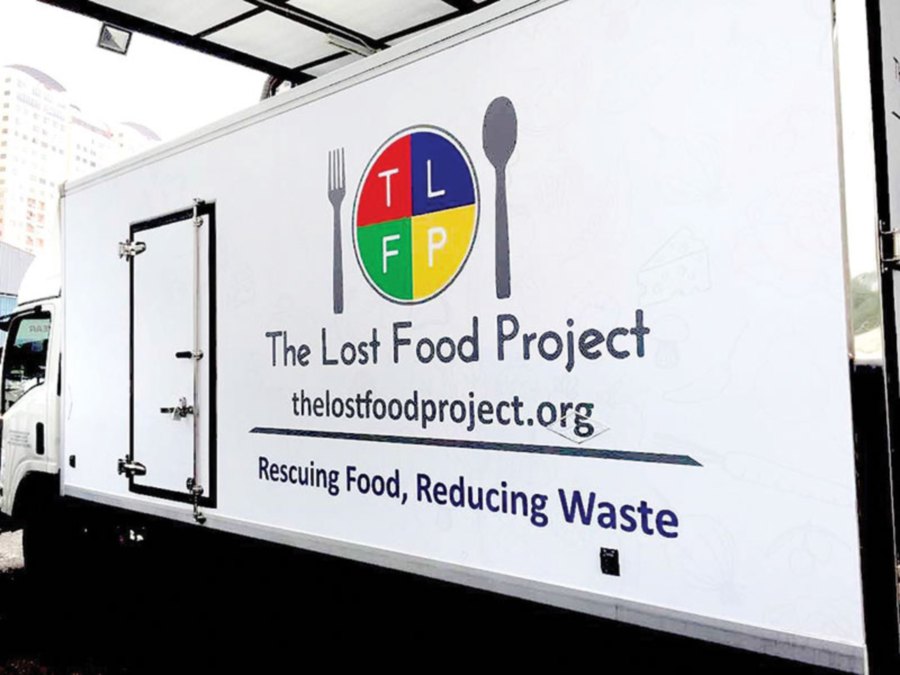
TROPICAL TOUCH
She’s midway through a story about one of her BBC assignments when her youngest child crawls into her arms and starts asking her questions.
“Not now, Mr Boo,” she looks at him reassuringly, but clearly his pout is too much to bear.
Mooney speaks to him momentarily before he leaves to join the other kids.
Smiling, she says: “This is probably the most challenging thing about running The Lost Food Project and being a full-time mum!”
Mooney had her kids “fairly quickly”, as she describes it, when she and her husband moved to Switzerland where he was based.
“We both had our dream jobs. Mine with BBC and his with UEFA, and one of us had to give it up,” she confides.
A few years later, the family followed him to Malaysia, a place they’ve called home for over three years.
“Yea, I don’t see myself living anywhere else!” says Mooney, chuckling.
She confesses that for the first few months of their move here, she lived in an expat bubble. That was until she started doing some community work with refugees in KL.
“When you start working with charity, you start to find out that there are so many other groups out there who need help,” explains Mooney, pointing out that she remembered her time with Eggar.
“I thought at that time, he does so much. But the truth is that any one of us can do something if we really want to.”
UNITED WE STAND
When The Lost Food Project first started, a small group of volunteers used the space in their cars to transport food to those in need.
Today, the project is already in the process of getting their second truck. “We’re very lucky to have the cooperation of so many great people here in Malaysia — from government agencies to the grocery stores and the volunteers. Of course there are hiccups occasionally but it’s been such an exciting journey so far.”
While she may have given up her dream job for her family, Mooney admits that she wouldn’t have it any other way. “This job has no pay but the satisfaction you get from giving back. that’s the biggest reward,” she smiles contentedly.
Marilyn Monroe once famously said: “Good things fall apart so better things can fall into place.” There’s nothing more fitting to illustrate that then Mooney’s incredible journey.


